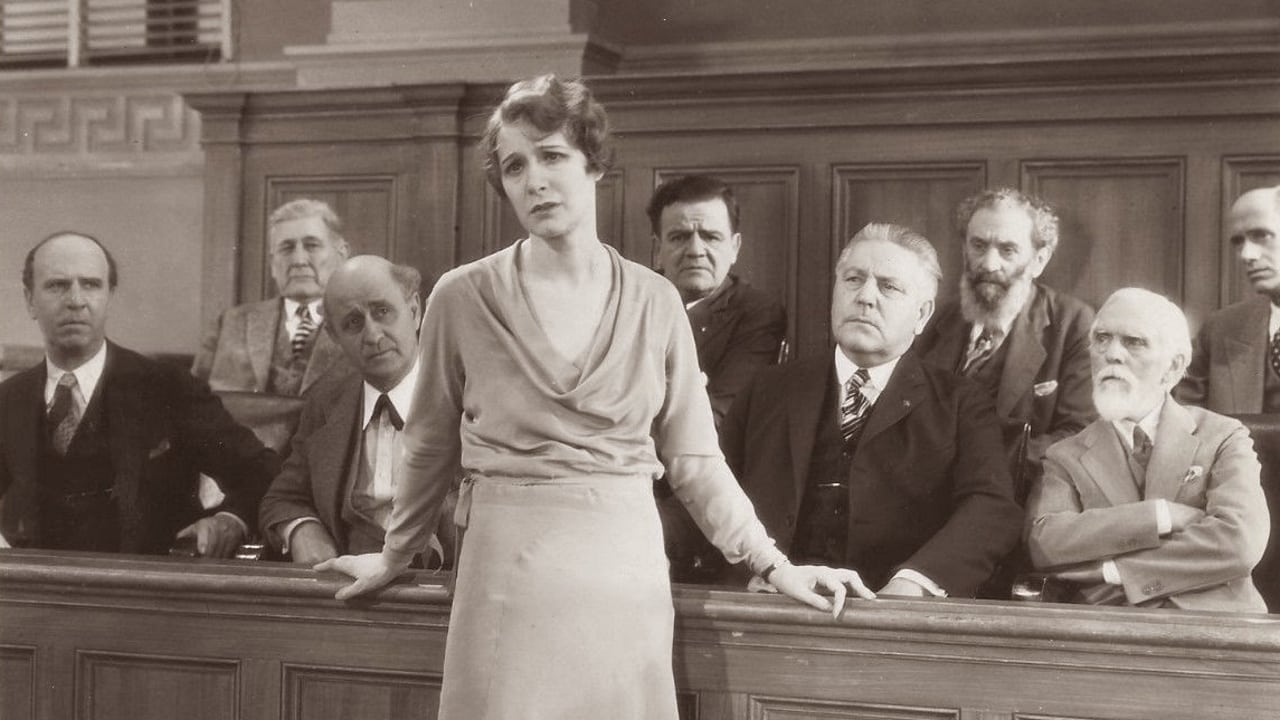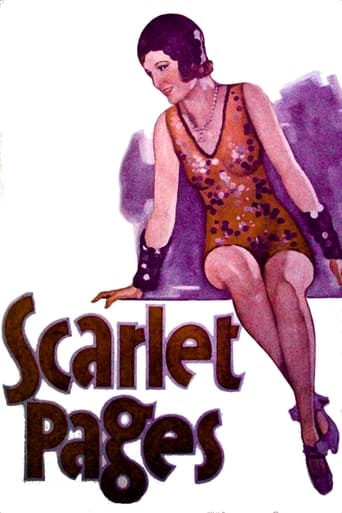



one of my absolute favorites!
I gave it a 7.5 out of 10
good back-story, and good acting
The best films of this genre always show a path and provide a takeaway for being a better person.
View MoreElsie Ferguson was one of the first major stage stars to come to the movies who realised a different style of acting was needed. She was fortunate to have as a director sensitive Maurice Tourneur - he understood her personality and they really hit it off. More importantly she was a success with the public who had just made "The Sheik" a rousing hit and she slotted into "aristocratic women in exotic locales" type of roles. Even though she retired in 1925 she was at the top so that when talkies came in all the studios were clamouring for her services and she finally accepted First Nationals offer to recreate her stage role in "Scarlet Pages". She inherited the stage role from Pauline Frederick and went on to make it into a sound Broadway hit! It was a storyline that was worn out by 1930 - the hoary "Madame X" one but anything that talked in 1930 was a hit and Elsie Ferguson made her talkie debut in it.I thought she was a bit "stagey" in it, John Halliday was the person who came off best with a quite natural performance but I think everyone was finding their talkie feet. Marian Nixon doubly so, considering she was seen as a successor to Janet Gaynor, then was given the role of Nora, a tough chorus girl who has been kicked around in life. I thought she was admirable in it.From her position as Attorney at Law, Mary Bancroft (Ferguson) can't forget her shabby beginnings and is free with her time and her friend D.A John Remington's (Halliday) money to help benevolent societies dealing with young girls in straightened circumstances. She and John go to a nightclub where they are both struck by the "fineness" of the specialty dancer who looks as though she doesn't really belong in those surroundings. There are things going on - Nora (Nixon) wants to marry Bob but her stepfather has other ideas which involves a deal with an unscrupulous business partner - he can feature Nora in the partner's new show if he turns a blind eye to some sordid goings on.Next scene is blazing headlines "Chorus Girl Kills Father" and eager Bob comes to Mary to see if she will defend the girl. Very plain to the audience that Nora is Mary's daughter who she placed in an orphanage almost 20 years before. I actually thought Mary knew and was bringing things to a head on the witness box so she could have the sensational denouement. In the trial sequence, which takes up the last part of the movie Elsie Ferguson was in her element and gave a real grandstanding performance. When the kindly nurse is put on the stand the real surprise was Mary's reaction - she just didn't know!! Nora is still feeling embittered but the way is left open for relationships to be healed.Grant Withers probably had his best year - he was seen by First National as a bright and breezy player (he definitely was in this one). Unfortunately his break out role in "Sinner's Holiday" also featured James Cagney in the role he had made his own on Broadway and who could compete with Jimmy!!
View MoreSome Heavy Going Weigh this one Down as an Early Courtroom Talkie. There is a Pre-Code Subject (out of wedlock babies) and some Cabaret Skin at the Opening, but the Film Struggles to Maintain Interest and much of it is Stiff and Sulan.Most of the Intrigue takes place Off Screen, like the Murder and the Fatherly Figure's Sexual Advances and Things are Restrained to Cross Examinations. There is a Late Revelation that Dominates the Third-Act that is not much of a Surprise Considering.Could be an OK Time-Waster for those Interested in Early Sound Hollywood. The Jazzy Sequined Dance Numbers at the Beginning are Unfortunately the Movie's Only Highlight.
View MoreConsidering this is an early talkie directed by journeyman Warner Brothers director Ray Enright who learned his trade at Mack Sennett's Keystone Studios mainly as a gag writer, this is not a bad little programmer. There are several intriguing camera shots from unusual angles. The story is interesting. A brilliant defense attorney on her way up takes a difficult case not to enhance her career but because she empathizes with the young chorus girl accused of killing her father. The reason for the bonding between attorney and client becomes obvious as the plot unfolds. The lady barrister is played with flair and dignity by distinguished silent screen actress Elsie Ferguson, who reprises her role from the Broadway production of the show. This apparently is Elsie Ferguson's only surviving film. The only one she made with sound. That her father was a famous lawyer helped Ferguson in adding authenticity to the role. In some ways, her performance reminds one of a certain lawyer Senator from New York, late of Arkansas, who may be the next President of the United States. There is even a throwaway line by Feguson to the effect that it's legal for women to be successful attorneys, a subtle attack on the sexism that was rampant in Hollywood and the nation at the time. Similar artificial barriers now confront that certain Senator mentioned above.Since it is based on a play, the film moves at a snail's pace even at 66 minutes. The murder is not shown, which would have been a big plus, catching the audience's attention near the beginning of the movie. There is way too much talk which the studios encouraged to show off the new media of sound cinema believing that audiences wanted as much chatter as possible for their money.Overall, with the exception of Ferguson the acting is weak. The pivotal role of Nora Mason is damaged by the histrionics of Marian Nixon who was also making the transition from silent to sound. She ultimately retired from films at an early age which may have been a blessing for the industry. At the time character actor Grant Withers was making a grab for the big times and does an adequate job as Bob Lawrence. The rest are blown away by Ferguson who basically has the film to herself.The speakeasy part of the film is one of the highlights. The Jazz Age is evoked with all its glamor and tinsel. In the precode days, more leg could be shown. So the viewer gets an eye-full. The flappers are flapping as never before, the Jazz trumpets blasting out in a carefree era that was winding down as Old Man Depression snipped away at the fluff.
View Moreis a stagy and unconvincing melodrama about an unwed mother, a sleazy murder, and (of course) redemption. Elsie Ferguson isn't bad though as the lawyer who learns a terrible secret while defending a showgirl of murder. The rest of the cast, however IS pretty bad: Marian Nixon, Grant Withers, John Halliday, etc. go through their paces without much to offer. Ferguson had been a big silent star playing upper-crust ladies in "weepies." This film was an attempt to revive her career (after 5 years), but it was just too late. Her speaking voice is fine, but the new medium of "talkies" and the new Depression-era sensibility made it clear it was time for Elsie Ferguson to retire from the screen.
View More